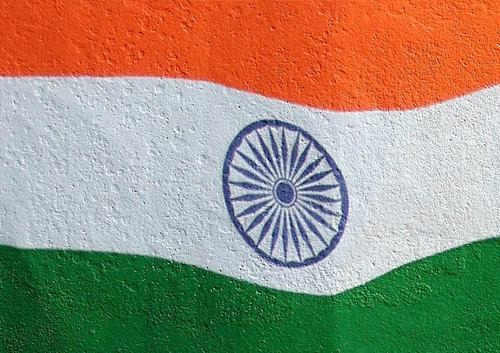Malala Yousafzai
Even though many people associate the fight for human rights with the 20th century, it is still a serious modern problem. In recent years, several advocates have campaigned for the education of young women in particular. A good example is Malala Yousafzai.
She became the youngest person to ever win the Nobel Peace Prize. This Pakistani woman has inspired a generation of women thanks to her brave story. It was covered by media outlets such as the Guardian and drew attention to Taliban oppression within her country.
Today she is known mononymously as Malala. She grew up in Swat Valley within Khyber Pakhtunkhwa. Girls were sporadically banned from school while the Taliban were in power. Her family were focused on educational activism and ran several schools within the local region. Malala was inspired by Benazir Bhutto and Muhammad Ali Jinnah at a young age. She cited them as crucial role models.
From the ages of 11 and 12, she wrote a BBC blog detailing what life was like during Pakistan’s Tehrik-i-Taliban occupation. A year later, a documentary was made about her. The activist Desmond Tutu nominated Malala for the International Children’s Peace Prize.
Her story gained even more attention after an assassination attempt. While riding on a bus in October 2012, she was shot in the head by gunmen in retaliation for her human rights activism. Malala survived after being transferred to Birmingham, UK, for treatment. The shooting led to an increased outpouring of support for her cause. Today Malala Yousafzai is considered one of the most influential living individuals for promoting education rights and feminism. She continues to give public speeches to help spread her message.
Malcolm X
When people list important figures in the civil rights movement of the 1960s, they will focus on Martin Luther King Jr. and Rosa Parks. However, Malcolm X is another crucial individual worth discussing. He gave powerful public speeches promoting black empowerment. The American Muslim community, in particular, often cite Malcolm X as an important person for advocating their rights.
He was born in 1925 and spent the majority of his childhood within the foster care system. In 1946, he was sentenced to 10 years in prison for larceny. While incarcerated, he converted to Islam. After being granted parole in 1952, Malcolm X rose to become the public face of the Nation of Islam. He would continue to serve this organisation for the next 12 years. His speeches would often have a more radical tone compared to Martin Luther King Jr. He criticised the ineffectiveness of the mainstream civil rights movement.
Malcolm X is often considered a controversial figure because he did not advocate for non-violence or racial integration. However, many people also celebrate him for his messages about increasing the rights of African Americans. Those who follow the Muslim faith sometimes cite him as an inspiring figure within their religion.
While working for the Nation of Islam, Malcolm X focused on improving the welfare of poor African Americans. He recognised the epidemic of drugs within his country. As a result, he promoted free rehabilitation programmes. During his lifetime, Malcolm X attained a hero status. Despite this, there was also concern within the government due to his views that black Americans should arm themselves. During the 1950s, the FBI started surveillance on him.
Like many human rights activists, the life of Malcolm X was tragically cut short. In the 1960s, he left the Nation of Islam after becoming disillusioned with its leader Elijah Muhammad. After a trip to Mecca, he decided to found his own Muslim organisation. He would continue to make speeches against the Nation of Islam and repeatedly received death threats. In February 1965, Malcolm X was assassinated by two members of this organisation. His murder shocked people around the world. This led to a resurgence in the popularity of his posthumous speeches. Consequently, many more people know about Malcolm X now compared to in his lifetime.
Mahatma Gandhi
Throughout history, there have been numerous individuals who tried to fight for the rights of others. Mahatma Gandhi is considered one of the most critical political ethicists of the 20th century. He is well known for promoting acts of non-violent resistance while campaigning for the rights of Indian citizens. One of Gandhi’s main goals was to gain Indian independence as the country was ruled by the British empire at the time.
Gandhi had a significant impact on society during his lifetime. He was assassinated in 1948, leading to a day of mourning in India. More than one million people joined his funeral procession, which stretched for five miles. The influence of Gandhi is still felt today. In modern times there are even shrines dedicated to this iconic human rights activist. Protesters all over the world employ his methods while campaigning for societal change.
He was born Mohandas Karamchand Gandhi in 1869. It was not until 1914 that the title of Mahatma was given to him. The meaning of this word has been cited as both “venerable” and “great-souled”. It is fair to say that India was very different before Gandhi focused on improving human rights in the country. Suppose readers use Wikipedia to research pre-Gandhi India. In that case, they may notice that the majority of citizens were dominated by British rule. One of his critical missions was to turn India into a self-ruling nation. He also created campaigns aimed at lowering poverty, increasing the rights of women and easing ethnic tension.
Gandhi came from a Hindu family and was raised in Gujarat. During his early life, he trained to be a lawyer, passing the bar when he reached the age of 22. After unsuccessful attempts to start a law business within India, he moved to South Africa. This became his home for 21 years. This country helped to foster his affinity for non-violent protest. He returned to his native land at the age of 45 in order to organise resistance movements within peasant communities. At the time, excess land tax was negatively impacting many farmers and urban labourers. Gandhi focused on improving the rights of these workers.
Towards the end of his life, he finally got to see India gain independence. He then worked hard to reduce violence between different religious communities. Today he is often referred to as the Father of the Nation. He changed the lives of ordinary Indians forever.



